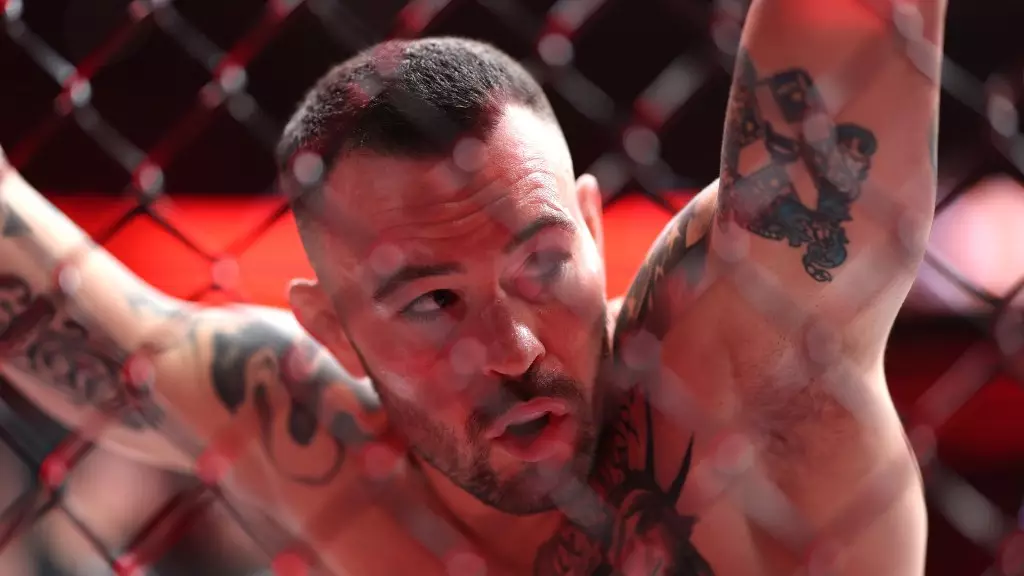UFC matchups are rarely straightforward, but the recent developments involving Ian Machado Garry and Colby Covington epitomize the unpredictability and layered intricacies of fight scheduling. After a year of pursuing a match against Covington, Garry found himself not only sidelined but also faced with unexpected changes in opponent and fight dynamics. This scenario reflects broader themes in combat sports, such as strategic positioning, the importance of timing, and the nuanced nature of rivalries.
Garry’s aspiration to face Covington has been a focal point of his career, with the welterweight division buzzing at the prospect of this highly anticipated clash. Covington, a former title challenger known for his brash persona and tactical fighting style, was seen as a formidable opponent that could catapult Garry further into the championship conversation. Garry’s anticipation turned to astonishment when Covington was matched against Joaquin Buckley at UFC on ESPN 63, a fight that came as a shock given Covington’s recent struggle to secure a fight. This unexpected twist highlights the fragile nature of fight bookings, influenced by various factors, including other fighters’ availability and injuries.
When the welterweight champion, Belal Muhammad, withdrew from UFC 310, Garry seized the opportunity to step up against Shavkat Rakhmonov in a co-main event. This shift not only underlines Garry’s willingness to accept challenges but also lays the groundwork for him to elevate his status in the division. The pivot reveals that the path to contention can often resemble a labyrinth, necessitating adaptability amid chaotic circumstances.
Garry’s outburst regarding Covington’s avoidance speaks volumes about the psychological aspect of rivalries in mixed martial arts (MMA). In an era where trash talk can significantly influence fan engagement and fight promotions, Covington’s silence amidst Garry’s provocations seemed to amplify frustrations. Garry’s claims that Covington has been avoiding him and engaging in petty rivalries only serve to intensify the narrative that surrounds their potential matchup. It is this back-and-forth that fans thrive on, creating a storyline that extends beyond the octagon.
Moreover, Garry’s declaration of Covington as a coward raises interesting questions about how mental warfare plays into fighter relations. Psychology in combat sports can often serve as a key determinant in a fighter’s performance. If Garry believes he has already defeated Covington mentally, that belief could translate into a significant advantage should they ever step into the cage together.
The Stakes of Welterweight Championship Aspirations
UFC CEO Dana White’s announcement that Garry versus Rakhmonov would serve as a title eliminator significantly elevates the stakes involved in this upcoming match. The winner is poised not only to contend for the championship against Muhammad but also to shape the future landscape of the welterweight division. Garry’s notion that a victory over Rakhmonov might remove Covington from his radar demonstrates a strategic mindset focused on immediate implications rather than future rivalries.
This encapsulates how fighters must navigate both their personal rivalries and the broader competitive field. The reality that beating Rakhmonov could mean a title shot juxtaposes the allure of settling scores with Covington. Garry’s pragmatic acknowledgment of Covington’s diminishing relevance further illustrates the necessity for fighters to focus on win-loss records rather than merely seeking vengeance, emphasizing the fine line between personal vendettas and professional aspirations.
As the MMA landscape evolves, rivalries will continue to shape not just individual fighter trajectories but also the overarching narratives within the sport. Fighters like Machado Garry, who are adept at harnessing the drama of heated rivalries, often find themselves on the cusp of greater fame and fortune. The dance between pursuing potential showdowns and performing under pressure reflects the duality of modern MMA.
Garry’s desire to face Covington is not just about personal animosity; it’s also a gateway to both notoriety and title contention. His journey serves as a reminder that in sports, especially in the realm of combat sports, the path to success is seldom linear, often requiring agility, resolve, and keen insight into the complex tapestry of competition. As fans await the outcomes of key matchups in the welterweight division, one thing remains certain: the saga of Garry and Covington is far from over.

